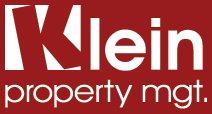Parking: Am I allowed to Park there?
Parking a vehicle within the community can be one of the most contentious issues that a homeowner may experience. Parking enforcement by the Homeowners Association (HOA) can be an especially frustrating problem for boards, homeowners, and tenants, because it concerns one of the most valued possessions that a homeowner has: their vehicle. This makes homeowners particularly sensitive when the board takes action against wrongfully parked vehicles or those in arrears, and can result in an angry reaction or in the worst cases, a lawsuit.
Many condominium associations consist of private streets that are not open for use by the public and are owned or maintained by the association. Generally, under state law and the community’s governing documents, the association may regulate parking as to owners and non-owners in these developments. Typical regulations might restrict the number of allowable vehicles, prohibit or limit commercial or recreational vehicles, or require that vehicles be parked in garages. The association will generally have the authority to enforce those parking restrictions by levying fines, suspending owner’s rights, or towing.
We often receive calls questioning where someone can or cannot park within the community, and questions such as: “Is anyone else except the unit owner of that specific unit allowed to park in front of someone else’s house?”
The answer is an unequivocal yes. Unless the spaces within the community are specifically reserved and marked accordingly, and the association and/or municipality allow parking, then anyone can park anywhere they want. Even in front of your house.
So what happens when someone is in arrears? Most By-Laws allow the amenities of a unit owner who is in arrears to be taken away. Taking away “in community parking” can be one of the most effective ways to collect arrears.
Here is a question that was answered by the NJ Cooperator®, which comprehensively explains the association’s rights and remedies:
From the NJ Cooperator®
Q Our condo association, which is private, has a situation that seems to be going nowhere. One of the units in the association has been for sale for over 2 years and the owner has not paid their HOA dues in 3 plus years. We as the board filed a lien on the unit, prior to the unit going on the market and one after the unit went up for sale. The owner has had all HOA privileges taken away (access to the pool, clubhouse) but we still have one lingering issue and that is parking on the street by family members. We can tell them not to park on the street but we are not sure how to enforce this. Can this be enforced? Also it seems the unit may stay on the market for some time. We have a lawyer dealing with the liens but we are wondering as an association board, is there anything else we can do besides wait?
—Waiting in New Jersey
A “Dealing with delinquent unit owners can be a time-consuming and costly endeavor for an association board,” says attorney Ronald L. Perl of the Princeton-based law firm Hill Wallack, LLP. “However, it is a board’s duty to ensure that members comply with their financial obligations to the association. As such, a board’s ultimate goal must be to ensure that each unit has an owner who fulfills his or her financial obligations and complies with the association’s governing documents.
“Taking an owner’s privileges away when he or she is in arrears is a good first step to alerting the owner that the association will not simply sit on its hands. The type of privileges that can be suspended depends upon each association’s governing documents. Most governing documents permit the suspension of voting rights and use of the common recreational facilities. Remember that the owner is entitled to due process and that the association’s governing documents may contain specific provisions that control the procedures involved.
“Revoking an owner’s right to park vehicles on the street can be accomplished where the streets are common elements and the board is authorized to regulate parking. However, unless the association is controlled by an access gate, the only way to enforce this restriction is by towing the vehicle or imposing additional fines. In order to tow a vehicle, the association must have adopted a parking resolution which provides for ample notice to the owners that non-payment will result in suspension of their parking privileges. Further, the community must be in compliance with the New Jersey Predatory Towing Prevention Act.
“While recording a lien against the unit is one step in the collection process, this alone will not necessarily result in receipt of the past due maintenance fees. Instead, the board will have to incur additional costs and either file a collection lawsuit or foreclose the lien. A collection lawsuit is ordinarily advantageous where a board believes the unit owner has a paying job or sufficient funds in the bank to cover the past due fees. Once a judgment is entered, an attorney will be able to levy upon the owner’s bank accounts or issue a wage garnishment to the owner’s employer. If however, the owner is unemployed and does not appear to have any funds, foreclosing the lien against the unit would be the most prudent course of action. In addition, if the unit is vacant or is occupied by a tenant, collection may be realized by the appointment of a rent receiver. This is accomplished in a foreclosure proceeding by an application to the court.
“Unfortunately, if there is no opportunity for a rent receiver, patience will be required since the foreclosure process is long and can take close to a year to complete. Moreover, foreclosing the lien may not result in recouping the past due amounts where there are mortgages which exceed the value of the unit, as is commonly the case in today’s economy. In addition, the association must be willing to purchase the unit at sheriff’s sale. However, once the lien is foreclosed and the unit sold, a new owner will take control of the unit and begin to pay maintenance fees going forward. Foreclosure of the lien may not always recoup past arrears, but it will serve the board’s ultimate goal of ensuring that each unit has an owner who fulfills his or her financial responsibilities.”
Associations have the authority to regulate parking on private roads within the development, as authorized in the governing documents. An association may even have the authority to regulate parking where the streets are public in nature. In either case, a review of the governing documents is necessary in making such a determination. The association has an important and powerful remedy available to it by towing unauthorized vehicles from the development. The towing statutes are procedurally complex, but not insurmountable if the association takes the time to understand and follow the statutory requirements, create reasonable and clear internal policies, and apply those policies in a fair and consistent manner.
Klein Property Management often publishes blogs about various issues that often arise with-in various types of communities. For more information about Klein Property Management, contact us at 732.446.0611 or click our link https://kleinpropertymanagement.com




